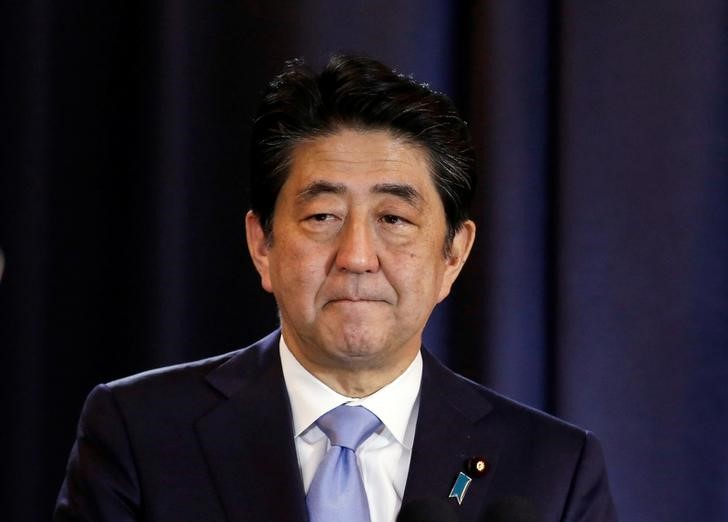Image: Japanese Prime Minister Shinzo Abe gestures during a press conference in Buenos Aires, Argentina, November 21, 2016. REUTERS/Agustin Marcarian
By Kiyoshi Takenaka
TOKYO (Reuters) – Japanese Prime Minister Shinzo Abe will visit Pearl Harbor this month with U.S. President Barack Obama, becoming his country’s first leader to travel to the site of the Japanese attack 75 years ago that drew the United States into World War Two.
“This will be a visit to console the souls of the victims,” Abe told reporters on Monday. “I would like to show to the world the resolve that horrors of war should never be repeated.”
The Dec. 26-27 visit will come seven months after Obama became the first serving U.S. president to visit the Japanese city of Hiroshima, on which the United States dropped an atomic bomb in the closing days of the war, in 1945.
Abe will hold his final summit meeting with the outgoing U.S. president during the trip to Hawaii.
Obama has close ties to the island state where he was born and where he and his family have vacationed throughout his White House term.
Japanese forces attacked Pearl Harbor with torpedo planes, bombers and fighter planes on the morning of Dec. 7, 1941, bombing the U.S. fleet moored there in the hope of destroying U.S. power in the Pacific.
The attack led to the United States entering World War Two and the eventual defeat of Japan in August 1945, days after U.S. atomic bomb attacks on Hiroshima and Nagasaki killed hundreds of thousands of civilians.
The White House said Abe’s visit would highlight the alliance between the former wartime enemies.
“The two leaders’ visit will showcase the power of reconciliation that has turned former adversaries into the closest of allies, united by common interests and shared values,” the White House said in a statement.
Abe last year spoke to the U.S. Congress and expressed “deep repentance” over Japan’s role in World War Two.
An outright apology from Abe would be unlikely during his Pearl Harbor visit, said Jeffrey Kingston, director of Asian studies at Temple University’s Japan campus.
“He won’t go as far as to apologize, but there will be a demonstration of contrition. He will follow Obama’s model” in Hiroshima, Kingston said. “Obama has shown the way forward in addressing the past without whitewashing and denying.”
In Hiroshima, Obama reiterated his commitment to pursuing a world without nuclear weapons, while avoiding any direct expression of remorse or apology for the U.S. nuclear bombings.
“I think Abe wants to draw a line under history and move forward with (President-elect Donald) Trump and get some difficult obstacles out of the way. It’s probably an astute move on Abe’s part,” Kingston said.
(Reporting by Kiyoshi Takenaka, Linda Sieg; Editing by Robert Birsel, Clarence Fernandez and Richard Lough)
Copyright 2015 Thomson Reuters. Click for Restrictions.


